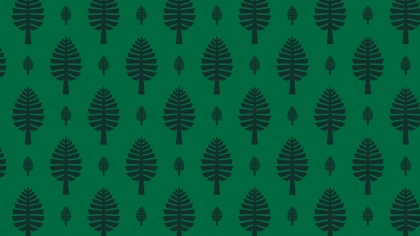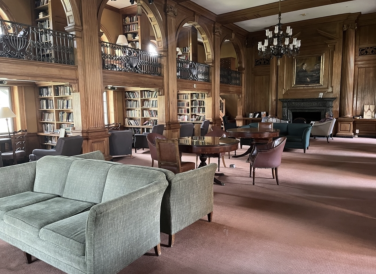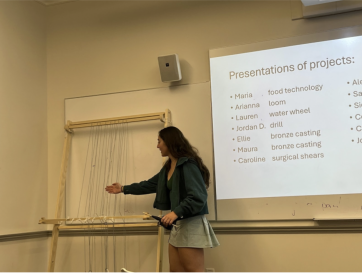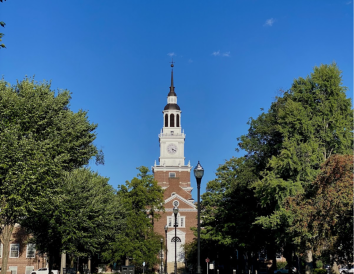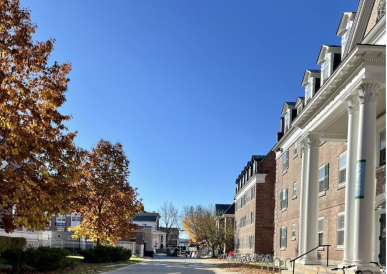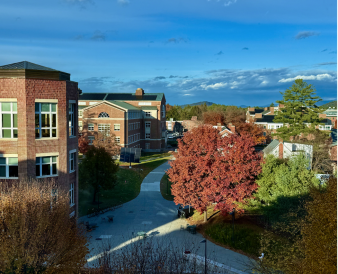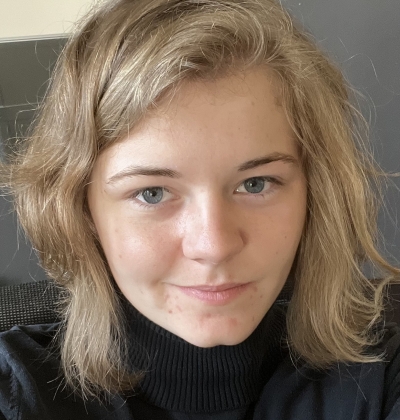
An Interview with an Earth Sciences Major
Dressed in brick and ivy, the physical sciences buildings are a complex maze of interconnected offices, classrooms, labs, and study spaces. The top floor of Fairchild Tower is flooded in sunlight with a stunning view of the valley. The fourth-floor labs in Steele, the chemistry building, also boast huge windows and natural views that can take your mind off the chemistry class at hand (I'm speaking from personal experience). This past summer, I headed to Steele to ask my friend Talia '24 about her time at Dartmouth as an earth sciences major and rock nerd. And I'm finally—FINALLY!—getting to share that interview with you all!
Q: Why did you decide to major in earth sciences?
A: "I came into Dartmouth as an engineering major, but I learned I wanted to do something more closely related to the physical sciences. I also have ridiculous levels of climate anxiety. Instead of saying, "Oh, someone else will fix climate change," I wanted to get into the field myself."
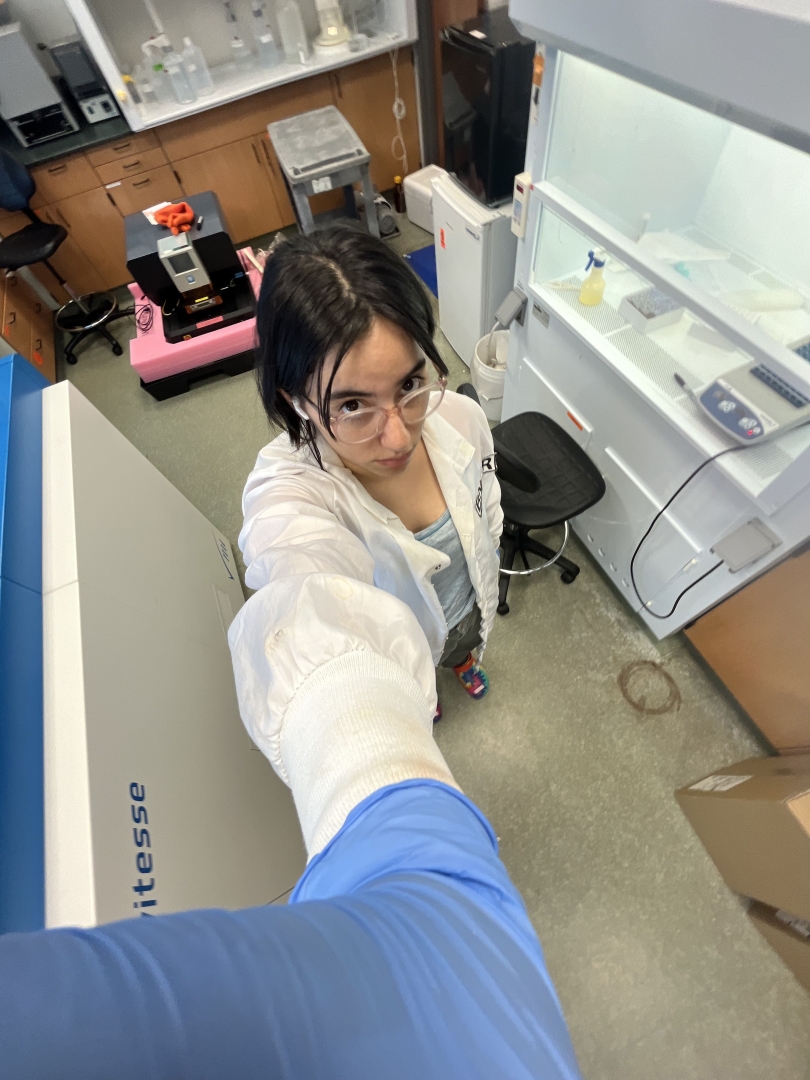
Q: How has the department been? How are the professors?
A: "It's been great. The faculty are really nice—so much more approachable than I was expecting. A lot of their work is hands-on, so there's a lot to get involved with as an undergraduate. Almost every earth sciences major is doing research in the department."
Q: Do you have a favorite class you've taken?
A: "Biogeochemical Cycles was the first class that I took that directly pertained to my research. It was a class that involved a lot of oceanography, and it focused on the interactions between river and ocean systems. We learned about carbon cycles, iron cycles, alkalinity cycles—there's a lot of cycles in earth sciences!"
Q: Are you working on any research or projects?
A: "Since this is an off-term for me [this interview was done in summer term of 2023], I'm working full-time in a trace elements analysis lab with Professor Brian Jackson. I do a lot of sample preparation and analysis for other people in and outside of Dartmouth, which means I get to do biomedical sample analysis, for instance. Our lab helped a group that was analyzing baby teeth from the 1950s, when a lot of babies were exposed to lead. But we also do our own work developing a method of time-of-flight mass spectrometry: right now I'm synthesizing materials and then adding a spike element and examining the effect."
"I've been working in this lab for two years, and when it came time to make my honors thesis proposal, I asked my professor what he wanted to look into more. We brainstormed this project on method development together. We're using time-of-flight to look at engineered nanoparticles versus natural nanoparticles—I'm specifically looking at iron oxides. We have a time-of-flight mass spectrometry machine that slices thin layers off a sample and can almost instantly create a map of the elements in the sample."
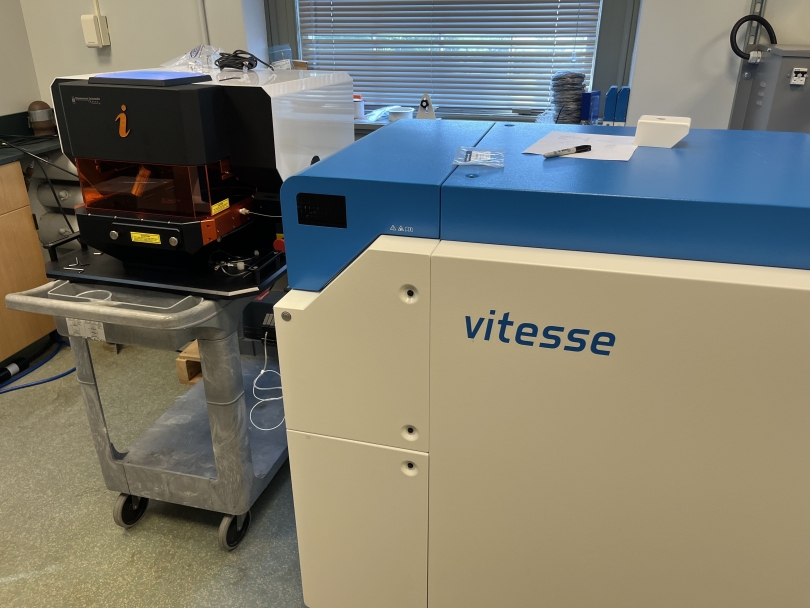
Q: What're you planning on doing after you leave Dartmouth?
A: "I want to work in the industry and then go to grad school. I'd like to do lab management of a mass spectrometry lab—I already meet all of the qualifications! It's fun to bounce around labs and get different experience, but you also get a ton of benefits from staying with a lab for a while. I've been a lab manager at four labs total—WISP [the Women in Science Project] has been really helpful in getting me these opportunities. I decided my current lab was the best fit. I'm paid for my work, and pretty much all student lab jobs here are paid, which is a huge benefit. You can even get paid to do your own research."
Q: Do you think Dartmouth is a good undergraduate institution for students interested in geology or earth sciences?
A: "Yes, absolutely. The department is small enough for you to get research positions, but also large enough that we have a lot going on. We do work in a lot of different areas: earth processes, environmental studies, weird niche geochemistry, ice research, and "regular" geology, to name a few. You learn a lot of practical skills here—fieldwork and lab work both. Our department has a lot of flexibility, and the professors are supportive and genuinely interested in our work. They're all nerds like us!"
Q: You're going on a Domestic Study Program called the Stretch this fall term. The Stretch is a geological survey of North America—what will that involve?
A: "We're doing several two week segments, and each segment is run by a different professor. We do labs and fieldwork for each segment, so we get to go in-depth into different niche subjects for two weeks at a time. I'm so excited—I have everything packed and I'm ready to go. The Stretch is such an excellent way to gain practical experience. Other schools have similar programs for their geology majors, but they're not as varied or as long."
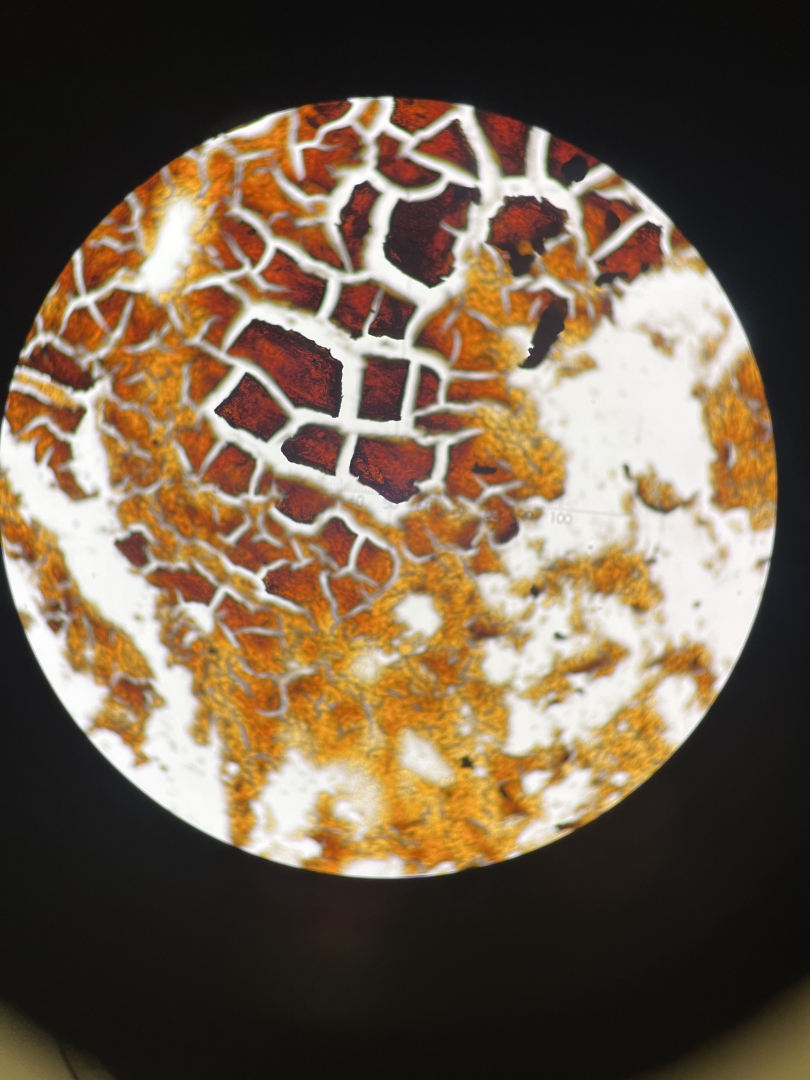
Since I did this interview, Talia has indeed gone on the Stretch. She told me it was everything she expected and more—but to spare her a second interview, I'll direct my lovely readers to this great webpage to learn more about this unique opportunity. Talia has since returned to Dartmouth for her winter and spring terms of senior year. If you want to learn more about the earth sciences department at Dartmouth, their department website is a great resource. Rock on!
